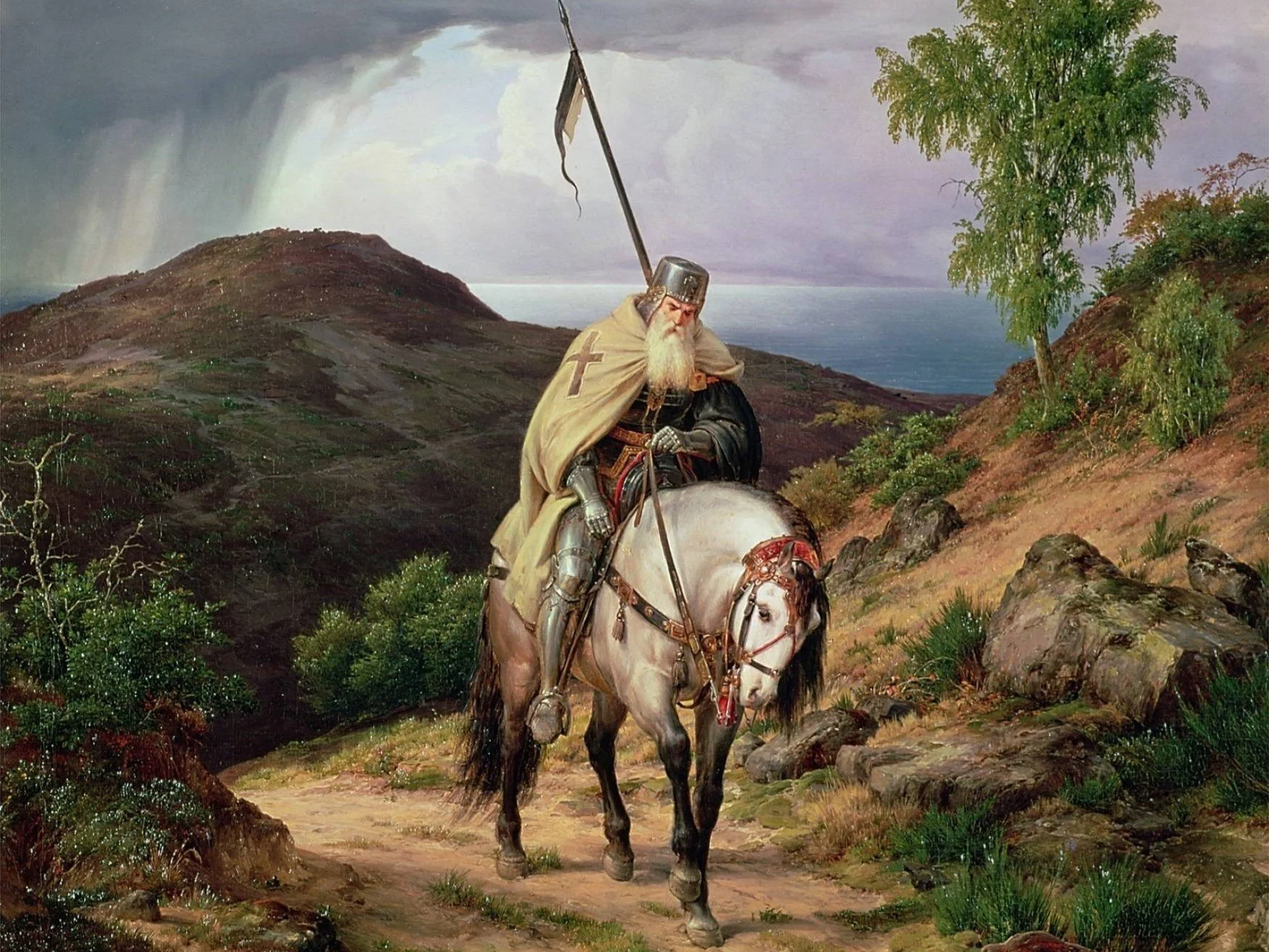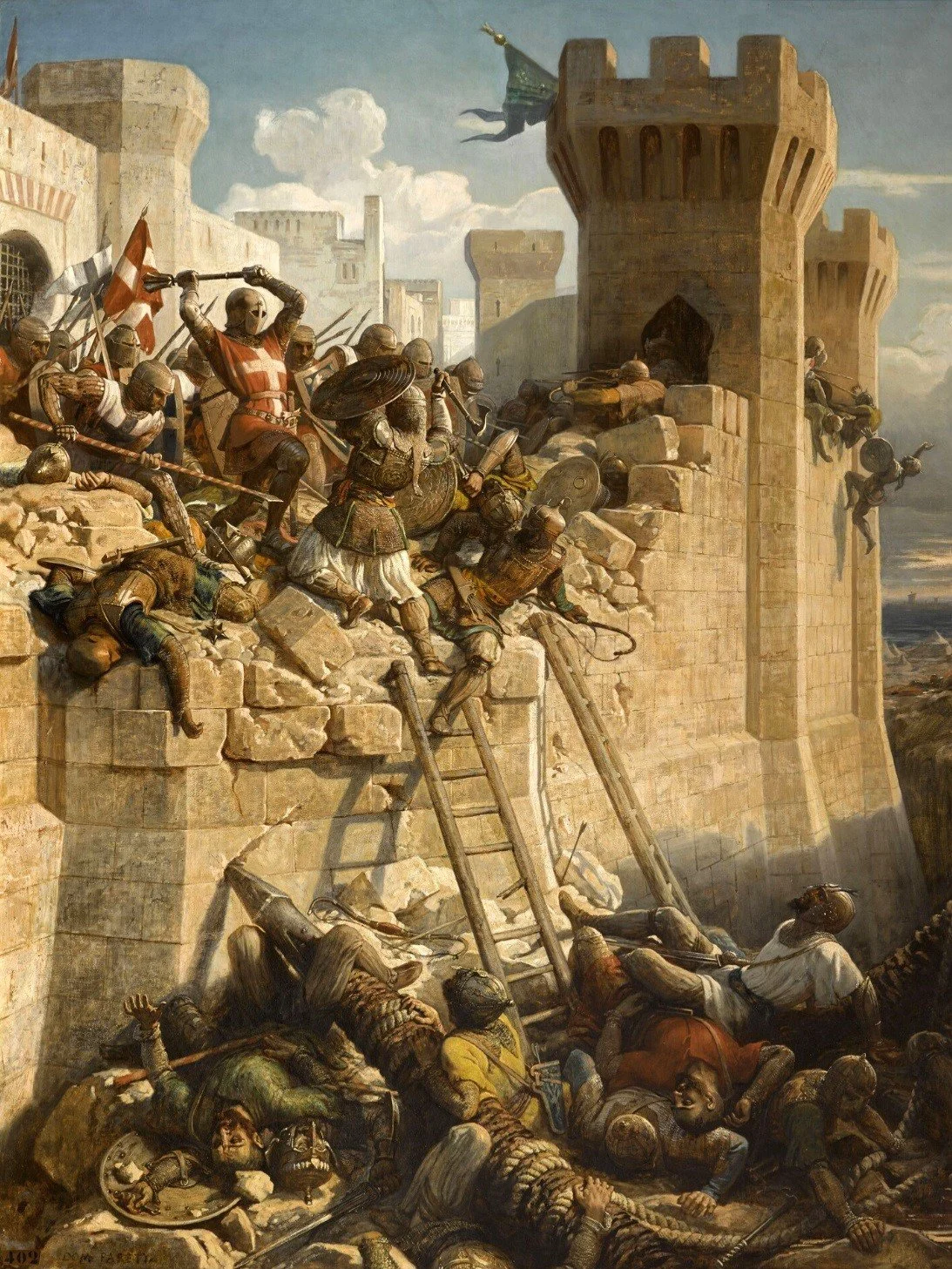Crusades End - The Franchise Is Canceled
Outremer ended not with a bang, but with a whimper.
(this is part twelve of twelve about The Crusades as a movie series)
After two centuries of fighting, the Franks were finally defeated because of, but not by, the Mongols. The Mongols captured Baghdad in 1258 and killed the last Abbasid caliph, ending its 500-year run as Greatest City in the World. It was a seismic event in the Islamic world.
Moving westward, the Mongols captured Muslim Damascus in 1259 and Aleppo in 1260, right on the doorstep of the Crusader States. In 1260, a Mamluk army rode in from Egypt and defeated the Mongols at the Battle of Ain Jalut, just north of Jerusalem. This ended the westward advance of the Mongols and put the Mamluks in control of most of the Levant.
Baybars, the Mamluk victor at Ain Jalut and the new sultan of Egypt, spent the next 17 years of his life working to drive the Franks into the sea. In 1268, Baybars captured Antioch, massacring and enslaving its Christian population. In 1271, Baybars captured Crac des Chevaliers, the most famous crusader castle in Outremer. By the time Baybars died in 1277, the kingdom of Jerusalem was reduced to pretty much just the coastal town of Acre.
The Eighth Crusade didn’t even come close to Jerusalem, and after it wrapped up in 1270, there were no more major expeditions to relieve the Christian forces in the east. With no serious reinforcements coming, they were doomed. In May 1291 the Mamluks conquered Acre, and Outremer was no more.
Back in 1096 when Pope Urban II called for an armed pilgrimage to Jerusalem, he a few goals in mind:
1) Retake Jerusalem so Christian pilgrims could visit the holy sites
2) Assist the Byzantine Empire in their ongoing battles with the Turks
3) Reunite the eastern and western halves of the Christian church
…boom bang, done, easy peasy.
After ~200 years of crusading, all three goals were massive failures:
1) Jerusalem was under Christian control for 88 years, then not for a few decades, then again for 10 years, then never ever again. Because this goal was successful before it failed, it towers above all other goals on the success tally, which is not a good sign for the Crusaders.
2) Instead of strengthening the Byzantine Empire, the crusades fatally weakened the state before finally crushing it with the sack of Constantinople during the Fourth Crusade. Yes, the Greek speakers eventually booted out the French speakers and again called themselves the “Empire of the Romans,” but it was never again a major regional power.
3) Starting less than 50 years after the Great Schism, the crusades made the break in the Roman Catholic west and Greek Orthodox east permanent. This was the biggest failure.
The crusades also changed the politics and economics across Europe and the Middle East:
- The Turks rose to become the most powerful force in the Middle East and southeastern Europe.
- Italian city states took over trade in the Mediterranean, bringing them the wealth needed to make the Renaissance happen.
- The kings in England and France built each into strong kingdoms, allowing them to turn their energies to fighting each other for the next few centuries.
Maybe the most influential change that the crusades brought about would be the idea of the Indulgence. Starting as just an incentive for those going on crusade to Jerusalem, it would expand to cover all kinds of activity supported by popes and bishops. Martin Luther didn’t like that, so, Protestant Revolution. But that’s another story.
No crusade launched after 1291 ever set foot on territory that once belonged to the four Crusader States. The era of the crusades was over. The crusades had shaped the Middle Ages, and they would continue to influence events in the future, but the idea of Christians retaking Jerusalem was finished.
The franchise was canceled. Cut to black.
The movie franchise had a long run. The studio cranked out movies and pushed the merch. There were many sequels and spin-offs. But eventually, the audience moved on. The studio called it quits, shut down all the open projects, and tried to sweep it under the rug.
The movies might have a future in syndication for Saturday afternoon TV, but will anyone watch linear TV anymore? Maybe they’ll drop as a highlighted collection on a streaming service. If there’s money to be squeezed out of the franchise, you can bet they’ll try. And who knows? Maybe they’ll become kitsch cool in the future, so it’s best to never sell the IP…
But just because there are no new movies, doesn’t mean the movies never made an impact. Or that they ever went away. The teenagers who hung out at the multiplex and plunked down their cash for the latest installment of a so-so movie franchise would grow up, and one day, a few of those kids would become the actors, directors, and studio executives of the future.
The next generation was shaped by the films, both what was on the screen and what they felt. The Crusades influenced the future, which eventually became history. You might not know where you’re going, but there’s no going back.





